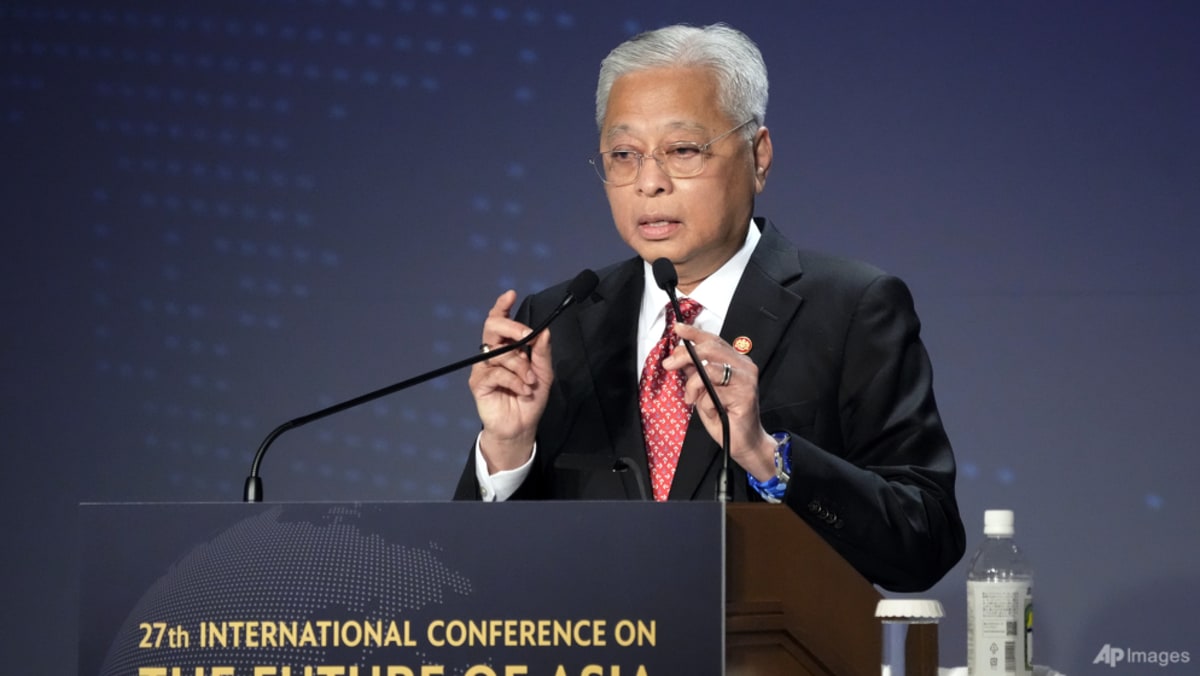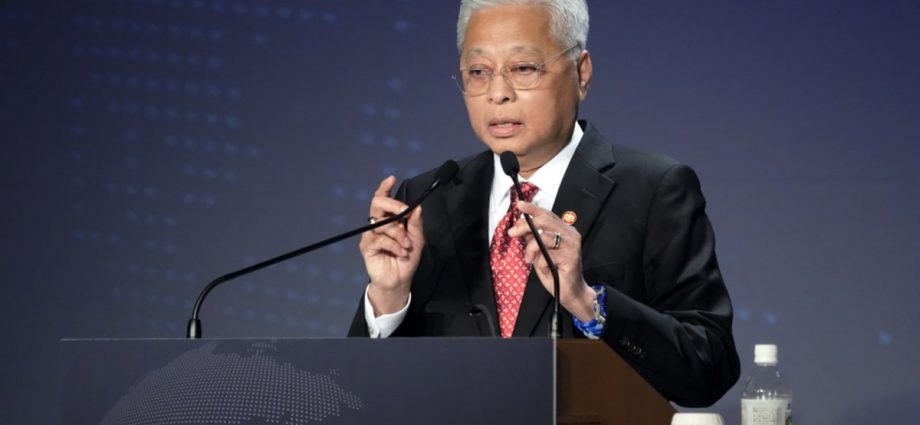
KUALA LUMPUR: Malaysian Prime Minister Ismail Sabri Yaakob confirmed on Tuesday (Oct 4) that he will soon have an audience with King Al-Sultan Abdullah Ri’ayatuddin Al-Mustafa Billah Shah.
Without specifying the agenda of the meeting to be held on Thursday, the prime minister said that the decision on when to dissolve parliament is his prerogative, local media reported.
This comes after the supreme council of the United Malays National Organisation (UMNO) decided last Friday night that parliament must be dissolved soon so that general elections can be held this year. The supreme council also said that Mr Ismail Sabri will present a proposed dissolution date to the king.
On Tuesday, the prime minister was quoted as saying by the New Straits Times: “Some people say (parliament dissolution will be done) before the (tabling of 2023) budget, some say after budget on Monday.
“Others say this month or November and even next year.”
There has been intense speculation that Mr Ismail Sabri might dissolve parliament after the budget for 2023 is tabled this Friday.
He told reporters that his audience with the king was an ordinary pre-Cabinet briefing.
“Every week before the Cabinet meeting I meet the agong … The audiences are more towards Cabinet meeting papers,” he was quoted as saying by Malaysiakini.
Mr Ismail Sabri added on Tuesday that while anyone could provide views on when parliament should be dissolved, the decision remains his prerogative.
“Before this, it (the dissolution) was never discussed openly. In the past, if the prime minister announced parliament would be dissolved, it would be dissolved,” he was quoted as saying by Free Malaysia Today.
“There was no such thing as other political parties giving their views or trying to interfere.”
According to Free Malaysia Today, Mr Ismail Sabri said that past prime ministers did not discuss the dissolution of parliament with their own parties.
“If the prime minister feels it is the right time to dissolve parliament, he will seek a dissolution.
“I will consider all ideas and views. But these views do not have any bearing on the (prime minister’s) power to propose (the dissolution of parliament) to the king,” said the prime minister.
He also reportedly said that the memorandum of understanding on political cooperation with the opposition would be valid until the parliament is dissolved.
He said that while the opposition could provide their opinions on the dissolution of parliament, it could not influence the prime minister’s decision.
The five-year mandate of the current government will expire in July 2023, and the 15th general election must be held within 60 days of the dissolution of parliament.
Mr Ismail Sabri is facing mounting pressure from his party to dissolve parliament. However, he has yet to commit to a timeline for the polls.
There have been calls from the opposition and his own Cabinet members to avoid holding elections during the upcoming year-end flood season and in light of the inflation pressures faced by the people.
On Tuesday, Perikatan Nasional (PN) chairperson Muhyiddin Yassin was quoted as saying by Malaysiakini that the ministers from his coalition have been instructed to disagree with the polls being held this year while they attend Cabinet meetings. PN is a component of the ruling coalition together with Barisan Nasional.
Parti Islam Se-Malaysia (PAS) president Abdul Hadi Awang also said on Tuesday that it was inappropriate to dissolve the parliament in the near term because the country was focusing on economic recovery and flood season preparations.
“PAS is of the opinion that in any situation, the interest of the nation and the people should come first including economic recovery measures that should be supported especially through the Budget 2023 which will be tabled,” he said, according to a statement. PAS is a component party of PN.
Malaysia’s Meteorological Department has warned of floods during the north-east monsoon season, which typically starts in November and ends in March.
UMNO president Ahmad Zahid Hamidi, who is facing 47 charges of criminal breach of trust, corruption and money laundering, has been very vocal in pushing for snap polls, ostensibly to seek a fresh mandate from the people.
He has criticised the opposition for using the flood and inflation narrative to resist an early general election, labelling the flood narrative as a “myth”.

